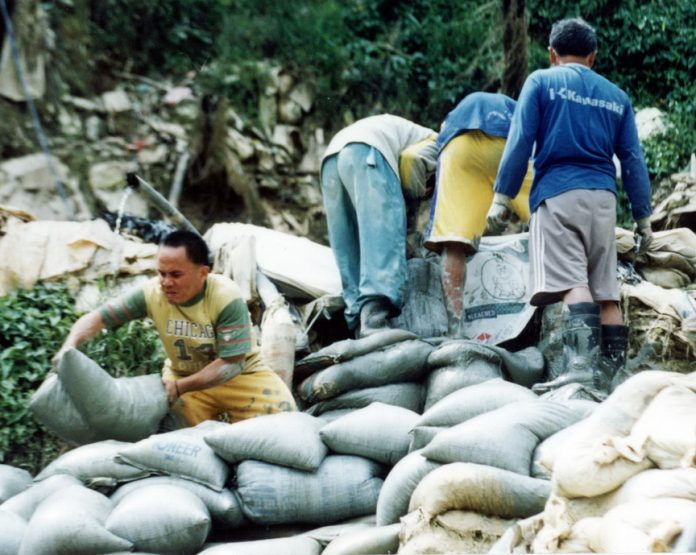The Philippine Mining Development Corporation has partnered with the Philippine Economic Zone Authority (PEZA) in a bid to convert the 8,100 – hectare Diwalwal Mineral Reservation Area into a mineral processing industry zone.
“This development means sharing the responsibility of the PMDC with PEZA in inviting investors to develop the reservation area as a sustainable show window,” said Alberto B. Sipaco Jr., president and chief executive officer of PMDC during the Kapihan sa PIA on Friday.
With the mineral processing industry zone in place, investors can now put up processing plants, he said, adding that investors can get their materials from small scale miners.
He said the alliance will create linkages in capital investments that will open floodgates to more breaks, such as the industrialization of the gold rush, establishment of settlements in safe areas near the mining area, funding housing projects, building infrastructures for mineral processing.
All of these is seen to create revenue and tax opportunities both for the government and the investors.
PMDC has already identified more or less 150 hectares of land in Mt. Diwata where the gold refinery, gold processing plants and resorts (where it could attract of tourist) be situated.
“We will make this project a sustainable one, so this will become a mining legacy for the area, Diwalwal being known to be the gold find of the century,” said Sipaco. “So it is here where responsible mining hinges on as a show window of the government’s policy to responsibly mine and to sustain development.”
He said PMDC will spearhead the operation of mining in the area of Diwalwal, which is in Mt. Diwata, in the town of Monkayo, Compostella Valley Province.
“We will not relegate this to foreign investors although we will be dependent on funding from foreign investors that is the condition I have given to the Investors when they try to signify their intent to develop this area,” he said.
He said that it will not be anybody else but PMDC because PMDC is the only mining corporation of the government.
“Very soon PMDC will showcase state mining and will be the show window for responsible mining and sustainability of development,” he said.
He mentioned that there is one mining firm from Australia showed interest in the project. He said that they have conducted negotiations and out of those negotiations, the mining firm is willing to give them commitment fee.
“They even doubled the commitment fee, and they said that with the Victory tunnel to be developed and explored, they would even build a tunnel that is six meters by six meters and connect it to the municipality of Boston in Davao Oriental,” he said.
He said that the focus of exploitation and development of the gold-rush area is still the major obligation of the national government and this responsibility encompasses many engagements crucial to the protection of many stakeholders, particularly the indigenous people (IP) settlers affected by the transfer of existing processing plants, resettlement of squatters and the delivery of the basic services to the community and affected families.
He said that the policy direction of the Philippine government in mining is divided into two first is responsible mining and sustainable development.
Responsible mining points to the conscientious exploitation and use of mineral resources with an intention to embrace legal, right, ethical, moral, economically and socially acceptable practices while sustainable development is ensuring the productivity of the mineral hub is not sacrificed where the interest and safety of nature and its people-dependents are more important than gains.
“Responsible mining, which is largely the campaign to follow legal guidelines, adopt ethically correct practices and infuse a sense of moral obligation in the exploration, exploitation and development is mineral resources. The second aspect is what we call sustainable development, which is anchored on certain percepts and concepts, mostly global orientation. The sustainable development includes the concerns and issues on social corporate responsibility, benefits for host communities, revenues for government, and post-mining opportunities,” he said.







